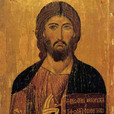
Summary: This 1st episode of CS is titled, “It Begins.”The best place to start is at the beginning. But with Church History, where is that? Where do we begin?Most MODERN Christians would probably start with Jesus. That seems pretty straight-forward.But where would the FIRST Christians have begun?They were Jews, and considered what they believed as a purified form of Judaism; a faith Moses would have approved of. They believed Jesus was Messiah, the long hoped for & oft prophesied Savior Who came to restore the faith God revealed to Abraham 2000 years before.So à Where would Peter, Andrew, John, James, or Thomas have begun telling the story?The Apostle John begins his story of Jesus at creation with the words “In the beginning …” We’ll come up in time considerably and start with the man known as Jesus of Nazareth engaged in His public ministry; traveling through Northern Israel with a dozen disciples.At that time, the 1st Century of what modern historians like to called the Common Era, Israel was an uneasy part of the Roman Empire. Unlike some provinces that counted being part of Rome a privilege, Israel loathed their Roman occupiers. Most Jews resisted more than just political domination by a foreign power; they also despise the Greek culture the Romans brought with them.All this stirred the pot of popular expectation among Jews for the arrival of the Messiah who they anticipated would be primarily a political figure. Scripture foretold He’d replace corruption with paradise; the wicked would be punished, the righteous rewarded, and Israel exalted among the nations. Messiah would restore David's throne and rule over the affairs of Earth.Some prophets spoke of a war between good and evil that would resolve in the Messiah's victory. This flavored the anticipation of many. They cast Rome as the chief adversary Messiah would crush.By the 1st Century, different groups had developed around their belief in what was the right way to prepare for this political Messiah.The Pharisees devoted themselves to the Law of Moses and religious tradition.The Essenes took a segregationist approach, pursuing holiness by moving to isolated communes to await Messiah's arrival.Zealots advocated armed resistance against Rome as well as those Jews who collaborated with the hated enemy. Zealots drew their inspiration from the successful Maccabean Revolt against the Syrian Greeks a couple hundred years before.A 4th group were the Sadducees who took a more pragmatic approach to the Roman presence & accommodated themselves to the Greco-Roman culture they were convinced would eventually become the status quo. Sadducees were a minority but held most of the positions of political and religious leadership in Jerusalem.The last and by far largest group among the Jews of 1st Century is rarely mentioned; the Common People. They were neither Pharisee, Sadducee, Essene nor Zealot. They were just à Jews; everyday people in covenant with God but preoccupied with fields, flocks, trades, markets, family, & well—Life; the daily grind. They held opinions regarding politics and religion but were too busy surviving to join one of the groups who claimed superiority to the others. It was these commoners who were most attracted to Jesus. They were drawn to Him because He did a masterful job of refusing to be co-opted by the elites.Jesus came in the traditional mode of a Rabbi, but was anything but traditional. Like other rabbis, He had disciples who followed Him, but His teaching stood in contrast to theirs. His words carried authority that challenged the thick, hard shell of tradition that had become encrusted round their religion. Listening to Jesus wasn't like listening to a commentary on Torah, which so many other teachers DID sound like. Listening to Jesus was like listening to Moses himself, explaining what the law was meant to be and do. Then—Jesus did something that really made people pay attention; H
